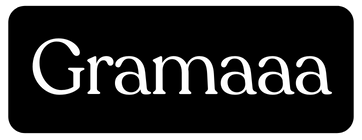Riddles have always captivated curious minds, offering a delightful mix of challenge and amusement. One such riddle that has puzzled many is: “What has four eyes but can’t see?” This clever wordplay often leaves people scratching their heads, trying to decipher its hidden meaning.
Understanding riddles like these not only sharpens problem-solving skills but also adds a bit of fun to everyday conversations. So, what’s the answer to this intriguing question? Dive in as we unravel the mystery behind this popular riddle and explore why it continues to stump even the most seasoned puzzle enthusiasts.
Decoding the Riddle: What Has Four Eyes but Can’t See?
The riddle “What has four eyes but can’t see?” intrigues many due to its clever wordplay. The answer is “Mississippi,” a state name with four ‘i’s yet no vision.
Origin of the Riddle
This riddle likely originated from playful linguistic traditions in English-speaking cultures. It leverages homophones and puns, common in riddles, to create a misleading question. While the exact origin remains unclear, it’s been part of popular culture for decades.
Popularity and Usage
The riddle enjoys widespread popularity due to its simplicity and humor. It’s often used in educational settings to engage students with language play or as an icebreaker in social gatherings. Its enduring appeal lies in its ability to challenge while entertaining audiences of all ages.
Exploring the Answer to the Riddle
The riddle “What has four eyes but can’t see?” intrigues many with its clever wordplay. The answer, “Mississippi,” uses linguistic tricks to create a humorous and engaging puzzle.
Interpretation of “Four Eyes”
“Four eyes” in this context refers to the four ‘i’s in the spelling of Mississippi. This phrase often misleads people into thinking about glasses or multiple individuals, but here it cleverly highlights letters within a word. Such riddles play on homophones and puns, making them both challenging and entertaining.
The Answer Unveiled
The answer, “Mississippi,” showcases how language can be used creatively. While Mississippi contains four ‘i’s, it obviously lacks vision. This type of riddle exemplifies how English can be manipulated for humor and engagement, appealing to various audiences through its simplicity yet deceptive nature.
Why Riddles Like This Are Important
Riddles like “What has four eyes but can’t see?” play a significant role in both education and entertainment. They engage the mind, encourage creative thinking, and provide amusement.
Educational Benefits
Riddles enhance cognitive skills by challenging individuals to think critically. They require problem-solving abilities and lateral thinking, which improve mental agility. For example, solving riddles helps develop vocabulary as individuals decode wordplay and understand multiple meanings of words. Additionally, they promote reading comprehension by encouraging close attention to language details.
Fun and Entertainment
Riddles offer a fun way to pass time while stimulating the brain. They create social interaction opportunities as people share them with friends or family. For instance, riddling sessions can become lively group activities that foster bonding through shared laughter and enjoyment. The humor in riddles also provides stress relief by offering light-hearted moments amidst daily routines.
Conclusion
Riddles like “What has four eyes but can’t see?” serve as delightful puzzles that blend humor and intellect. They not only entertain but also sharpen cognitive abilities and foster social connections. Through linguistic play, riddles enrich our language experience while offering a break from daily stress. Embracing such wordplay can lead to enhanced critical thinking and shared moments of joy, making them an invaluable part of both education and leisure.
